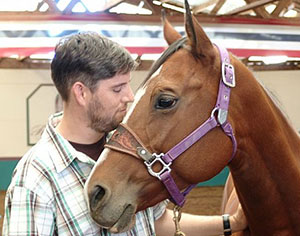Canine Influenza
 Get More Pet Tips
Get More Pet Tips
Content provided Pet Talk with Dr. B is meant for educational purposes on health care and medical issues that may affect pets and should never be used to replace professional veterinary care from a licensed veterinarian. This site and its services do not constitute the practice of any veterinary medical health care advice, diagnosis or treatment.
Canine Influenza:
Share This Everywhere!
Canine influenza was first diagnosed in racing greyhounds in Florida in 2005. It is closely related to the equine influenza virus and is not contagious to people or other animals. The disease has a high rate of infection and is easily spread among dogs by aerosolized respiratory secretions, direct dog-to-dog contact, and transmission through infected objects, such as toys or bedding.
Even though transmission among dogs is high, approximately 20-50% of dogs will clear the infection without any clinical signs. The other 50-80% will have symptoms that mimic infectious tracheobronchitis (kennel cough) caused by Bordetellabronchiseptica. Infected dogs can have coughing, fever, listlessness, and a snotty or runny nose, and most recover with supportive treatment. A small percentage can develop a bacterial pneumonia, and secondary mortality from this disease can reach 5%.
A vaccine for canine influenza was developed for use in 2009. However, this vaccine is not considered a “core” vaccine by veterinary experts. It can be useful for animals kept in high density situations, such as shelters, racing kennels, boarding facilities, or dog shows. The vaccine has limitations, though, because it is a killed vaccine. A dog requires a booster 2-4 weeks after the first dose is given in order to establish immunity. The second dose or booster also must be given at least 7 days prior to entering an at-risk situation. Another limitation of the vaccine is that it will not prevent a dog from being infected by canine influenza; it will only help reduce the clinical signs. It also does not prevent a dog from shedding the virus and exposing other dogs. Please consult with your veterinarian to see if the canine influenza vaccine should be added to your dog’s preventative wellness plan.



